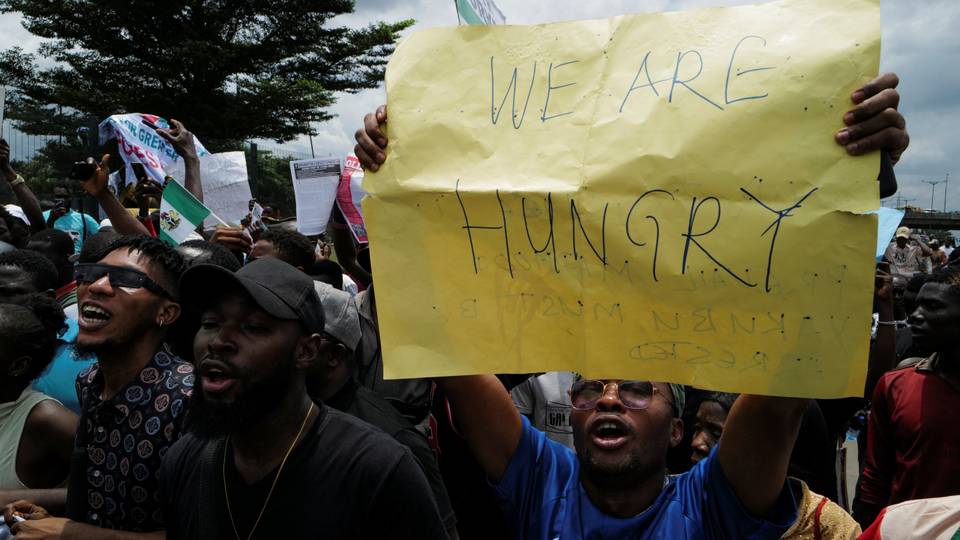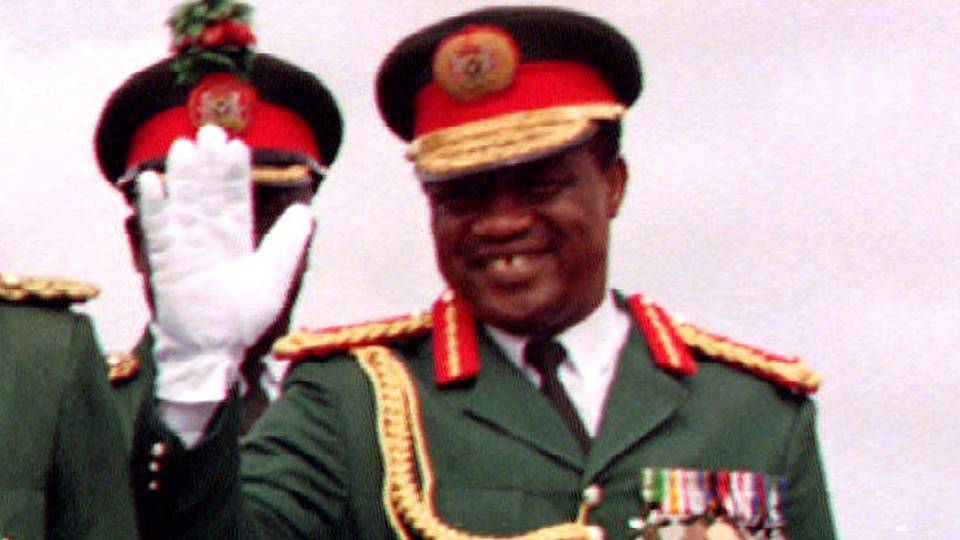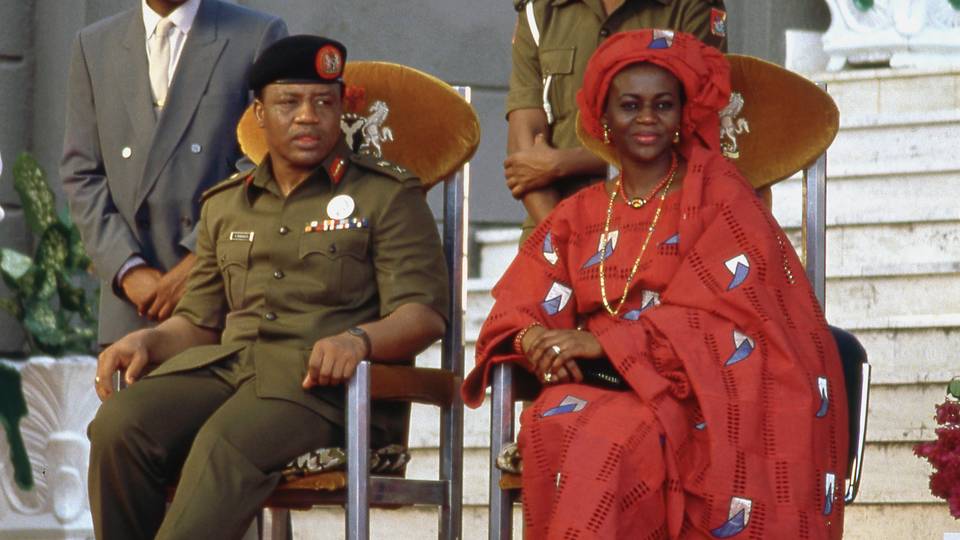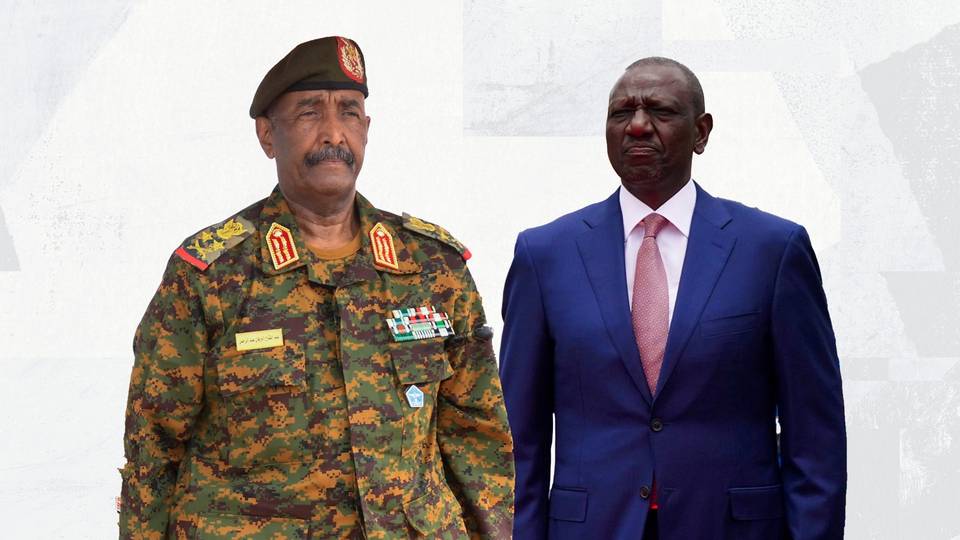Sport
Dollar
38,2552
0.34 %Euro
43,8333
0.15 %Gram Gold
4.076,2000
0.31 %Quarter Gold
6.772,5700
0.78 %Silver
39,9100
0.36 %Extreme expressions of unrest, such as waving a foreign flag during the anti-inflation protests in Nigeria, have stoked the debate over whether that constitutes an erosion of patriotism among citizens.

By Charles Mgbolu
Patriotism, variously described as unconditional love, allegiance and a willingness to sacrifice even one's life for the country, takes on a different hue when viewed through the subjective lens of opinion shaped by circumstance.
From its roots in ancient Greece and Rome — the word originates from patria, or nation in Latin — patriotism has evolved into a more contemporary understanding and interpretation of what citizens feel about a country through the highs and lows in its history.
So, where does patriotism stand in Nigeria against the backdrop of the current agitation over hyperinflation that has unleashed varying expressions of angst and disillusionment?
"Many young Nigerians are angry; they are disappointed in the current state of the economy and struggle to feel a sense of pride for the country," journalist Nnamdi Ojiego tells TRT Afrika.
Writing on the wall
From protesters waving the Russian flag at recent protests in some parts of the country to the refusal of some to sing the reintroduced national anthem, there is pent-up anger and frustration everywhere.
"The economic challenges in the country are making things very difficult. Many are looking for every means to vent their frustration. Patriotism as we know it is at its lowest ebb, especially among the youth," says Ojiego.
Lagos-based lawyer Ebuka Iwueze believes economic struggles have contributed to this, although he doesn't condone what he sees as unpatriotic acts.
"The current economic situation is not a reason for you to wave a foreign flag during protests and call for foreign military intervention. Conversely, you cannot beat a child so hard and recoil when the child cries out," he explains.
According to Iwueze, resentment brewing in Nigeria over the soaring cost of living since last year was expected to erupt at some point.
"Some would obviously react to the same situation differently than others. People are frustrated, especially in northern Nigeria, where hunger and sickness are rife. If people see any avenue to voice their frustrations, they will use it," he says.
Extreme reactions
Many see the rise of an anti-patriotic tide, manifested in acts of destruction on the sidelines of the protest, as a sign of things to come and seek immediate corrective action.
Nigerian lawmakers considered imposing a jail term of 10 years for actions deemed "subversive", such as "destroying national symbols" or "refusing to recite the national anthem and pledge allegiance".
The proposed bill was revoked after it was heavily criticised.
"It was a misfire, a wrong approach," says Iwueze of the abortive move. "You cannot use the law to force people to express their feelings or display acts of patriotism openly."
But does the lack of consensus on what constitutes an unpatriotic act clear the way for subversion under the cover of protests?
Some viral videos of the #EndBadGovernance protests show sections of protesters waving the Russian flag and calling on Moscow to "rescue" them. This even led to the Russian embassy in Nigeria clarifying that it had nothing to do with the flag-waving protesters.
Measured response
Nigerian police said more than 90 people with Russian flags were arrested.
"It will be difficult to defend these people in court because the state of the economy cannot be used as an excuse to commit crime," says Iwueze.
Ojiego believes national sensitisation campaigns should be initiated to prevent such acts. "We can disparage or hate politicians, but we must teach people to love their country and do everything within our power to protect it," he tells TRT Afrika.
President Bola Tinubu's government, for its part, has pleaded for patience, promising its policies will soon yield fruit.
"I have painfully asked you, my compatriots, to sacrifice a little more for the survival of our country. For your trust and faith in us, I assure you that your sacrifice will not be in vain," Tinubu had said last year, shortly after removing the fuel subsidy.
Nigerians say they are tired of waiting, but perhaps they don’t have a choice.
"The only way to restore spontaneous patriotism is to get the economy working again. When a nation only offers hunger, convincing anyone to be patriotic is difficult," Iwueze tells TRT Afrika.
➤Click here to follow our WhatsApp channel for more stories.
Comments
No comments Yet




















Comment